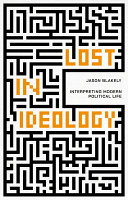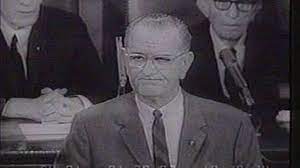To coin a phrase: It’s beginning to look a lot like Christmas!
Which – translated into church speak – means: it’s Advent again!
Because Christmas falls on a Monday this year, we have the shortest possible Advent. No matter. In the 21st century, Advent, which begins today, is but a barely noticed sideshow to Christmas. That tells us more about us and our time and place than it does about Advent itself.
Historically, Advent originated as an annual period of repentance focused on preparation for Judgment Day. Hence, the medieval English title “Doomsday Sunday” for today, which, rather than starting something completely new, actually just continues the end-of-time, Judgment Day themes of the last several Sundays, summing them all up in Jesus’ warning: “Be watchful! Be alert!” Meanwhile, like the servants in today’s Gospel [Mark 13:33-37], we have all been left with work to do, while we wait for the lord of the house to return.
So Advent is all about the future, for which we wait, but also all about our conflicted, problematic present, in which we live and work and act. Thus, the older I get, the more I think I have really begun to appreciate how much sense Advent makes. The older one gets, the more aware one becomes that time is running out, and thus the more one appreciates the importance of the present. Time is so particularly precious, precisely because it is so limited, but also (and that’s the Christian spin on what is an otherwise universal human experience) because it has a future.
Hence this Sunday’s somber, seemingly fearful tone. Even were there no war in Ukraine or in the Middle East or the increasingly imminent threat of climate catastrophe, what we see and observe are autumn’s withered leaves, winter’s barren branches, and the imminent end of another year. What we feel and fear is the end of ourselves. As Isaiah laments in today’s 1st reading [Isaiah 63:16b-17, 19b; 64:2b-7]: we have all withered like leaves, and our guilt carries us away like the wind.
Yet, while Advent seems to start out being about fear, it is also about faith and hope – both the passing of an old year and our hopes for the new, both the enveloping winter darkness of a dying world and the dawning brightness of Christ’s coming to save us.
Advent annually ritualizes our ongoing present reality, where we actually are right now, living and working and waiting, between Christ’s first coming two millennia ago at Christmas and his final coming, the blessed hope and coming of our Savior Jesus Christ, for which we Christians claim to wait in genuinely joyful expectation.
Such an Advent season is not some antiquated interlude on the way to Christmas. Much less is it some artificial exercise in make-believe, trying to compete (as if one could complete) with the joyful holiday season in which we already find ourselves. As I like to say every year at this time, the liturgy isn’t a play. We are not reenacting God’s entry into our world a long time ago, or pretending Jesus hasn’t already been born but will surprise us on Christmas morning – as if Jesus were Santa Claus. The point of Advent is not – as it might superficially seem – to delay our celebration of Christmas, but rather to refine our experience of Christmas.
The point of Advent is to make the impending anniversary of Christ’s 1st coming concentrate our attention on his presence and action in our world in the present. That present – with its wars and crises and elections – has plenty of problems, as we all know and all have experienced in different and challenging ways. The challenge of Advent is to re-imagine Christmas as more than just a distracting escape into shopping and presents and parties (however wonderful those things may be in themselves). The challenge of Advent is to recognize in the reality of the Christmas story something even more wonderful than shopping and presents and parties, to recognize something really new and wonderful, pointing us hopefully into the future, by the bright light of Christmas past. The challenge of Advent is to let our anxious and increasingly fear–filled present be transformed into that hopeful future already promised us by Christ’s coming in the past. As Saint Paul assures us in today’s second reading [1 Corinthians 1:3-9]: God is faithful, and by him you were called to fellowship with his Son, Jesus Christ our Lord.
At no other time of year does the world seem so extremely receptive to the story that is told and retold throughout this season. So we need to let this Christmas season speak to us – and through us to the world.
Advent is a wake-up call to respond to Christ’s coming and so live as people for whom the Christmas story really matters – matters enough to make everything different from what would otherwise be in a world without the presence of its one and only Savior, Jesus Christ.





